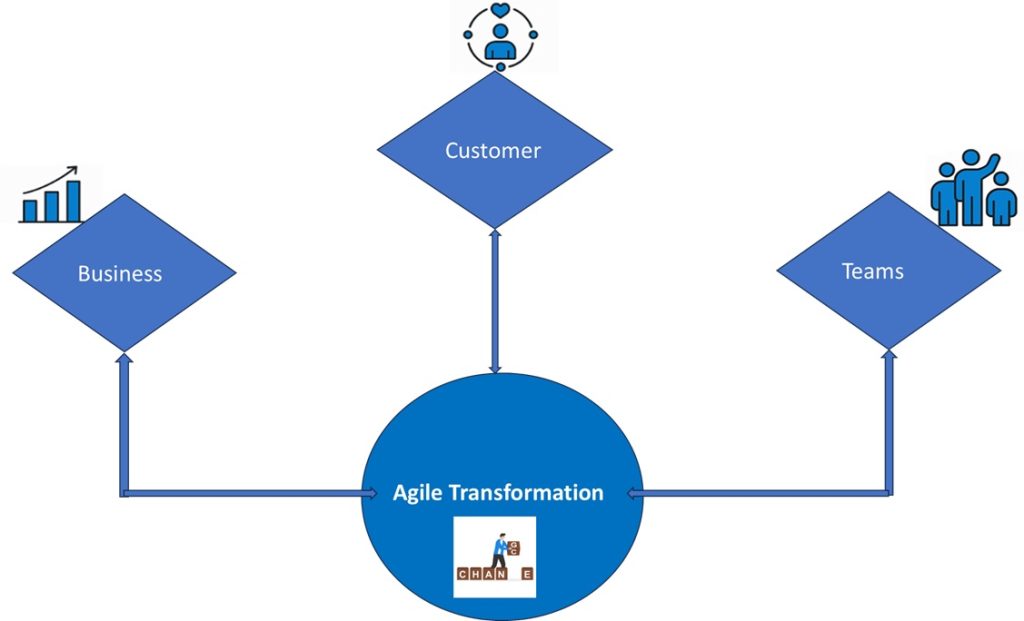When a newly commissioned ship sails from a port, laden with valuable goods, every captain hopes the ship will navigate the tumble of the seas well and be the ship of choice, in the years to come. No one expects the Titanic journey. Every sailor that you get on board, signs up after confirming at the seaworthiness of the new ship. However once in a blue moon, the seas can turn very rough and violent, all of a sudden. Sometimes, it could result in the ship starting to crack instantly. Well at that moment, as the captain of the ship what do you do – Do you try to steer the ship to safety? Are you worried about the valuable goods in the ship? Or do you care for those ordinary sailors who trusted you to work on board the ship?
I think, ideally you want to do all three of them. Initially you would want to see how you can do everything possible, to do all three of them. If that’s impossible… what next?
The message comes in
Well let’s get into the real story now. Like most captains, I was delighted when I got an opportunity from the principals to create my ship and set it sail. Over a period of 10 months, I had convinced 71 people to come on board, as my crew. From first officers, chief engineers to the seasoned sailors, we had everyone on board. Then one morning at about 7:00 AM, I got a call asking me to bring the curtains down on the organization. The principals who financed, wanted me to pay off the statutory dues and the notice period to each employee at the gate, as they try to walk-in and then to shutter down!
I always knew there was an element of risk, when you are setting up a new organization. But what startled me was the direction to issue the cheque – as the employee walks in and ask them to leave. Couple of decades ago (I presume to a good extent even today), such an approach would have shocked every employee in India. After all you sold them a dream, and asked them to join you. While I understood that the principals, were keen to just close it out after meeting the legal needs, it would have left 71 of them in a state of surprise, shock and awe. It was not something that happened often in my industry – an abrupt termination (though I had seen it happen in Australia earlier).
First reaction – buying time
I requested for a couple of hours time, and quickly called in my core team to let them know of what awaited us. They were shocked and surprised. So I knew if that’s the case, what would happen to all those bubbling cheerful youngsters who joined us hoping to build their dreams… So I had a quick discussion with my principals – to tell them that I would get the employees troop out quickly without causing any undue financial burden through the process. However, I need a week to ten days to make the voluntary exit happen. The requirement was for me to commit to that number then. If I failed, they wanted to immediately go back to their plan.
Having got the little window, had a quick discussion with my core team. We knew we had to act quickly and show progress. Else it was going to be an abrupt end to all. They all understood – but then they also had to plan, their own future, in the same time. [This reminded me of the standard message you hear in every aircraft during take-off. In case of fall in cabin pressure, the oxygen mask will fall down. Please fasten the oxygen mask to yourself first before you attend to your children or elderly.]
The employees were noticing that there was a flurry of to and fro with all the senior guys. They noticed the sombre look. They could not quite figure out what was happening.
By 10:00 AM that morning we called in the entire team, that was present, for a quick town hall. After all they need to know it, and know it very soon. I told they what happened. The initial reaction was one of complete disbelief.
Then I said that all of us are in the same boat. No one – be it them or my core team or me had the information any earlier (ignoring the 3 hour lead time I had). With no questions popping out, I had to push them to speak out. I said, what next? Do you have a job. Isn’t that the really worry and issue here.
It helped break the silence and there was animated reaction. Finally after about 20 -30 minutes of venting out, had to get the team to focus on the future. There’s nothing we gain by acrimoniously looking at the current state. Everyone of us were capable and it was time to see how we move forward.
Everyone wanted help. Many of them started talking of the fact that they were the sole bread winner. Some of them were concerned – that they had just picked up a loan for either buying a home or a vehicle. One of them was concerned – his engagement was fixed and he did not know what will happen to that now!
I asked them all to think over, as I took a break away from the team to starting thinking on the next steps. Soon, I had a plan. I had over the period used a couple of head hunters to get many of them in here. So I rung them back, and created an enticing situation. The market was hot and they were not getting good people to place easily. I was willing to have them come over to the office and meet my employees – to poach them and place them. For them, this was like a God given opportunity. When do they get a free run in a company to poach the talent and place them. Further, they just made money placing them and they could get another harvest immediately with the same folks! I wanted them to act quickly – so I made it clear that my employees were being made available to all my other head hunters. A couple of hours later – everyone called back and they wanted to get started. So I scheduled them for the following day.
Armed with a possible way forward – I called for a town hall again that afternoon. I explained that the head hunters will be in the office the next morning. So they had to get their updated resume ready before that.
Operation wind-down began
The next morning the office was a beehive of activity with the head hunters in full swing. I told my team, that they all should split and not land up in large numbers in any single organization for interview simultaneously. I had also told them not to go ahead and speak about the impending closure, in the wider market.
That weekend, many of them had their interviews. However, over a dozen of them landed up at company W for an interview. By the time the fourth guy went in, the interviewer said – so you are soon going to be out of work. Then the next question, if I offered you a salary lower than today – I am sure you will take it up isn’t it. What I dreaded, had happened.
[I have actively followed the Indian hiring market. In general I had observed – if you have a job, then you have a better chance of finding a job with a better pay. If you are out of job, then you have a great challenge – no matter what the capability.]
About 6 of them landed up with a job, that weekend. A couple of them with company W, too. Once they had a job, they now wanted to wait through the notice period. They wanted to figure out if they could get a better offer than what they had. This created a huge challenge for me. I had run out of my first week and my principals did not see a single resignation. They were pushing me hard to go back to their plan. By now 9 of them had offers. I now had to call these folks and tell them to put in the papers. They needed to understand, that they were otherwise jeopardizing the chances of the rest of the team to stay employed till they found a job. Finally on the following day – I got the 9 resignation letters.
I could now go back and tell the principals the plan is working and I would soon get the rest out of the place.
So for W
eek 2, I had to remind the team that not everyone should go to the same organization simultaneously. Most of them understood the impact now, wiser by the experience with company W in the prior week. Week 2 resulted in a dozen more making it. Many were happy and relieved. Some of them offered to put in their papers the next morning. Some of them started to resist putting in the resignation letter. Had to coax and when needed get others to push them a little more to get those resignation letters. This was very essential – for me to help the others (who had still not got anything) retain their job, till they found a new one.
In the meanwhile some of my senior colleagues and I called up our friends, very discreetly, to see if there was a need. We got a few more placed in that process.
The interesting thing – many of them were with us only for a few months. When we hired, we had jumped their salaries by 20% – 80% above what they were earning. Many of these folks – landed up getting another huge jump 10% – 100% more than what they were getting from us.
A few of them came back to thank us profusely. One of them, I remember distinctly moved up from 100K Rupees p.a.before he joined us to 420K Rupees per annum in just 3 quarters!
By the 4th week, we had about 50 of them put in the papers. So, we had 21 more to go. Most of them in my core team had started to move out as well.
Some of the others were so shocked with what happened, that they failed to clear the interviews anywhere. They were getting worried that others had found a job and that time was running out. We had to keep reinforcing the need for them to have faith in themselves. After all, they had cleared our interviews only a few months ago and got this job.
I tried to now look at helping my principals to make a reasonable deal, from the investment that they made in the infrastructure. After all I felt, it was time to see their perspective as well now. However, in their wisdom, they were not keen with the help and were willing to go with their own plans.
By Week 6 we were down to three people. I decided it was time for me to start looking at my future. The head hunters were after me from Day 1 – when I had told them that I was not looking at anything at that point of time. However I now opened out to them, as well as to my friends in the industry. A couple of weeks later I had found my new home.
The company wanted the help of one person – and he was fine to stay put. There were two of them, who still did not find a home. I worked out a deal for them – such that they would get some compensation and another 6 weeks of time, by when they would have to leave. One of them got a job in that period. I felt bad that at the end of this odyssey, one of them was still without a home. This fellow was one of the best performers in our interview. In the shock of what happened, he became tongue tied in many an interview – failing to answer even the basic questions.
It was time, and I moved on…
The silver lining in this dark cloud
We had crash landed first. We got 71 of the 72 (including me) moving on to our next opportunity. The majority of them had got another 20% more salary than what we had offered. Four months later, many other smaller organizations started to crash land. I could hear the same story from several others. But it became bad now, because of multiple of them crash landing. There were many folks who could not find a job for a long, long time. Some picked up jobs at less than their current earning.
By virtue of the first to crash land – we could quickly get almost all our folks to the shore (except one), safely!
The Analysis
When you promise a great opportunity – remember there’s the possibility of the risk unravelling. It’s essential to let people be aware of that (even if you don’t highlight it). I am sure many a start up person may have a different perspective here. Would be willing to listen to their thoughts and approach here.
The next thing, when you are suddenly hit – you need to let people vent their feeling out quickly. You will not like what happens, when people openly vent out their feelings. Suppressing it, will make it even more disastrous, as you will not be able to move to the next step. After that in double quick time – you have to get them to focus on their future. There’s no point in brooding or staying annoyed with the current situation. This was very critical in this case to ensure that the people attended the interviews in a positive frame of mind.
At least in the Indian market, all other things being equal, it has generally been easy to find a job, when you are still working; and a lot tougher when you are out of work. It’s a paradox, that this happens despite the fact that most people who hire, want the resources immediately.
When you are faced with such a crisis – the most important thing to do – be empathetic; coach your people; create a situation where they are valued by others (even though they are not so valued in the current org.)
You will find that optimizing self-interest takes over at times (like when the guys who got the job in the first weekend – wanted to use the full month’s notice period). It’s important to work your way through that and cut it out. They were legally right, but if that had prevailed – so could my principals – who legally could have issued the cheque and dropped everyone like a hot potato.
The 2% Masala Impact
Many a start-up will crash. When it does, I believe, if you sold the employees a dream to get on board, you have the moral obligation to try and help get them out. I am sure, some of you would disagree on the moral obligation part, stating that everyone needs to take into account the risk they took when joining – Caveat Emptor! That could be another approach, but I still believe in people first!
People could be technically strong and brilliant. It still does not mean, that when hit with a sudden storm – they will be emotionally prepared to weather it. This is the time to work and ensure that their negative emotions don’t consume them. Don’t let the shock devastate them. [Even to this day, I still feel bad for that brilliant Java programmer, who could not clear many an interview after that.]
Finally, when they say that the captain of the sinking ship should be the last to leave, I got a true opportunity to experience it! It made me wiser and prepared me far more, than any other event in my working career. I learnt what’s true people care, what happens when the risk materializes.
Would like to hear your experiences, stories. Would you have done anything differently? I have abbreviated the overall story (things like MBO was not practical in this case). Would like to learn….




